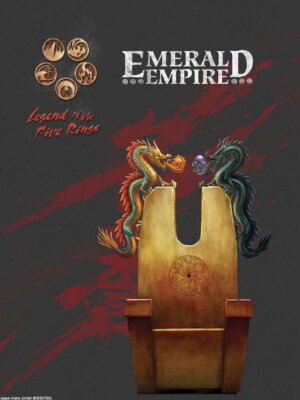
Publisher: AEG
RPG System: Legend of the Five Rings (L5R)
Authors: Shawn Carman, Robert Hobart, and Brian Yoon
Artists: Steve Argyle, Drew Baker, Jason Engle, and Imaginary Friends Studio
Year: 2011
Pages: 320 pages
Retail Price: $39.99
As we continue to grow, and get our sea legs under us, Elliott and I are going to continue to push the envelope and cover not only board games but also the genres of miniatures and role playing games.
This really isn’t as earth shattering as it may sound simply because Elliott and I not only cut our teeth on the old school Avalon Hill, SPI, SJG, Task Force – along with tons of other companies – board games that stocked the shelves in our high school days but we were also big time role playing fools too. I can say, with complete honesty, between the two of us we have either owned or played at least 100 different roleplaying systems over the years.
Any game master worth their salt can tell you that they pick up new RPG rules not looking to run a new system but in order to crib (I hate to say steal) a new thought or wrinkle in which to include in their current favorite game setting. Woe to the role player whose ref isn’t always looking for a way to make their game more involving or enjoyable!
Our first foray into reviewing a new role playing product is from our good friends at AEG and I’ll be the first to say it is a doozy!
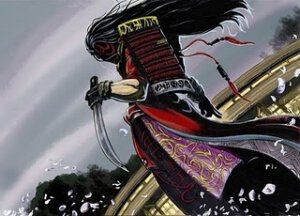
I’ll provide full disclosure and point out that I do not own, nor have read, the base L5R RPG system or any previous products in the line. The basis for L5R is all-in-all pretty new to me outside of playing a few games of the CCG back when it first came out. By pointing this out I’m sure there will be a few readers who will be scratching their heads as to why I’m even reviewing this and, better yet, giving it such a high score. The answer is pretty simple.
Having invested all the years I have into making sure the friends who are involved in a roleplaying game I’m running have an awesome time, I can tell a piece of crap sourcebook from a legitimate tome in my sleep. I can’t tell you why you’d want to play specifically as a member of the Crab, or Scorpion, or Lion clans but after reading Emerald Empire cover to cover I can tell you I’d really be interested in finding out. That’s what RPG sourcebooks do; they engage the imagination and make you want to run out and put a game together ASAP.
Reading through Emerald Empire makes me want to kick myself, because I don’t have the core L5R book – I went to one of the best sources of used RPG rules here in the Phoenix area, Bookman’s, the past few weekends to no avail – so I can’t sit back and tell you all there is about the system. Yet, while reading through the sourcebook, my interest is peaked in getting down and dirty with the game itself.
I could take the usual flat, dry review presentation of Emerald Empire and break things down chapter by chapter. But I don’t think that would do much of a service here, since those who are specifically looking for information about the book are no doubt going to find exactly what they’re looking for elsewhere. Plus, those of you who are regular visitors to TGG already know we don’t operate in the distanced, antiseptic way that a lot of gaming websites do; we just lay it out there and give you the good and the bad so you can take it from there.
Here’s a breakdown of the chapters:
Geography
Customs
Social Structure
Politics
The Arts
Money and Commerce
Law and Order
Religion
Education
War
The World Beyond

If you’re a referee or GM of L5R (sorry, I’m not real big on whatever tag a system wants to put on the guy or gal running the show) you are going to find nearly everything contained in the book essential. And I will point out that I’ve been told, by people who have been playing the game for some time, that this isn’t just a rehash of what was available in the last edition. Our friend at AEG, Todd Rowland, pointed out that a full quarter of the book is all new material. Even if you take into account the lavish illustrations that permeate the book, you have to be looking at a good 15-20% of new info overall.
You’ll also find a smattering of new rules and skillsets for characters scattered throughout, as well as charts and tables for use by GMs, but for the most part the material contained within is background details about the land and peoples of Rokugan.
Chapters on Customs, Politics, Religion, and Social Structure are going to be essential for those who run or play L5R. Immersion is the name of the game in roleplaying and these chapters provide a minute detail in the daily lives of not only the players, but the nameless parade of NPCs they’ll encounter in their adventures. This background isn’t something that’s to be memorized verbatim by the Ref but is something that they can draw upon to help fill in the blanks or provide backstory when needed. Also players would be best served to have a copy to pass around between game sessions to read up on for a better understanding of the dos and don’ts in the game setting.
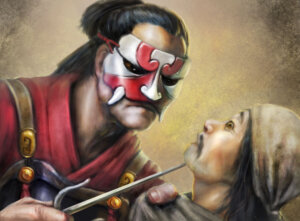
I always lucked out, during my twenty plus years of running Call of Cthulhu, that the setting wasn’t too far removed from our everyday history. I didn’t need tons of background info in order to immerse my players into the game; it was still our everyday world even if it was a bit skewed by the Old Ones. Having a grasp and understanding of history in the 1920s and 30s could bring a lot to the table. That is a major strength of the system.
That’s why I think Emerald Empire is such a great sourcebook.
Here you have a setting, granted one in which still draws from traditional Asian mythos for the most part, but still includes more than twenty years of tweaks and refinements to present a thoroughly original stage for role players to tell their tales.
In the end, the only real issue I have with Emerald Empire is the story nuggets which are presented throughout the book. This isn’t a GM’s guide by any stretch, and the value of presenting kernels for budding GMs as far as adventures is completely lost; why would I run a game based upon a tale my players already know the end? I need my players to read this book to make my life easier!
Overall if you’re even thinking of running a Legends of the Five Rings role playing game, or just into running an RPG set in preindustrial Asia, the fourth edition of Emerald Empire is certainly worth a serious look. If you’re already well entangled in the intrigue of L5R the sourcebook is a must buy.
- Chivalry & Sorcery Fifth Edition Reviewed - Nov 3, 2024
- Campaign Builder: Castles & Crowns Reviewed - Nov 2, 2024
- The Roleplaying Game of the Planet of the Apes Quickstart | First Look and Page-Through - Nov 1, 2024




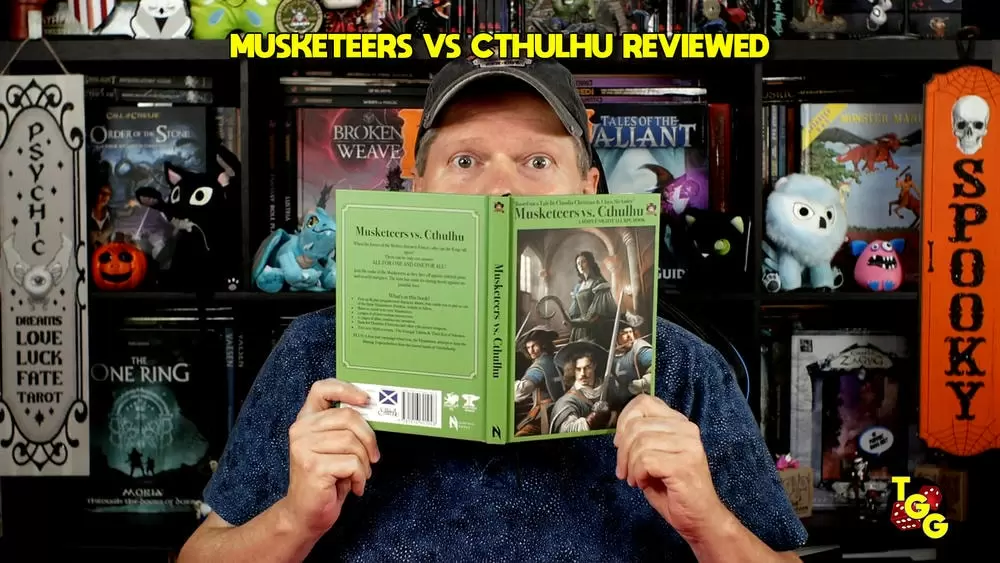
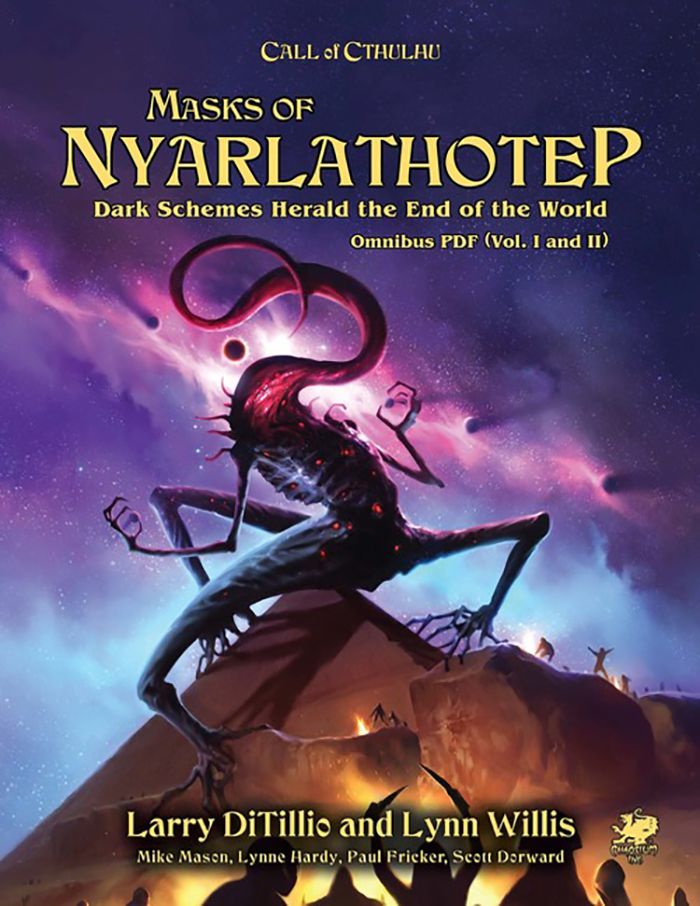
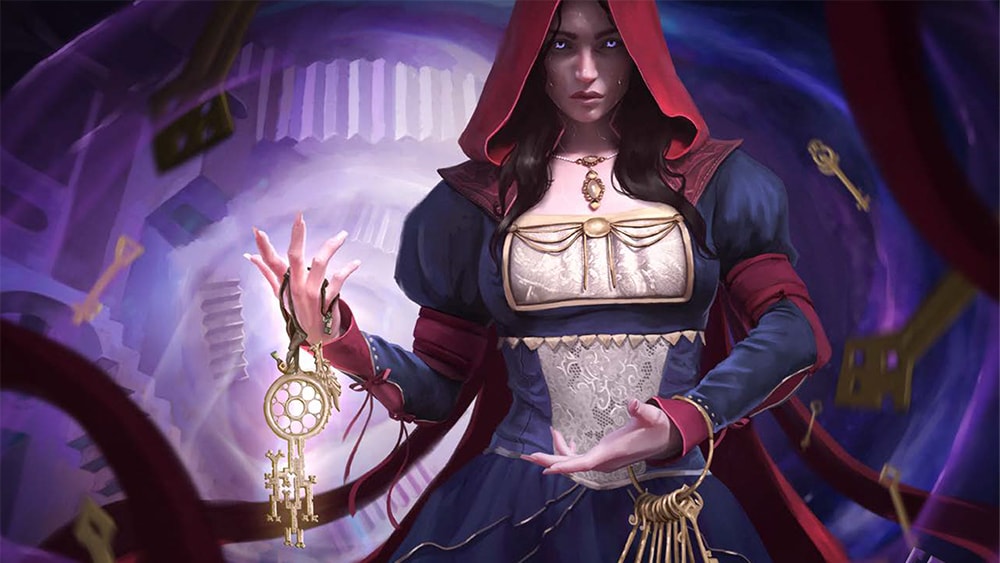







I ran CofC for Elliott and our other friends for somewhere in the vicinity of twenty years, so to say we’re fans would be a bit of an understatement. 😉
It is interesting that you are a Cthulu fan. One member of the design team did some writing for that system and is a big fan as well.